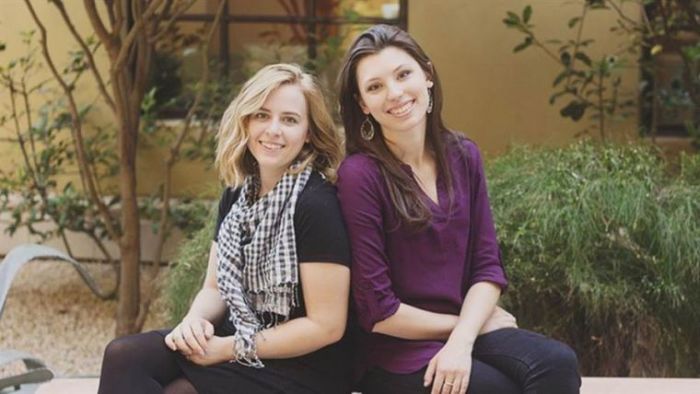Artists Ask Arizona High Court for Protection From Law Forcing Them to Work Same-Sex Weddings

A pair of Arizona-based artists have filed an appeal with the state Supreme Court asking for protection from a local ordinance that would force them to provide services for a same-sex wedding, despite their religious objections.
Joanna Duka and Breanna Koski, owners of Brush & Nib Studio, are appealing a decision from June by the Court of Appeals that upheld a Phoenix anti-discrimination ordinance and rejected their pre-enforcement civil rights lawsuit.
"This court should grant this petition to clarify whether public accommodation laws trump free-speech and free-exercise rights, to correct the COA's narrow understanding of these important freedoms, and to align Arizona's jurisprudence with recent U.S. Supreme Court decisions," reads the appeal, filed on Monday.
Jonathan Scruggs, senior counsel with the Alliance Defending Freedom, which is representing Duka and Koski, said in a statement released on Tuesday that he believed the "government must allow artists to make their own decisions about which messages they will promote."
"Artists shouldn't be forced to create artwork contrary to their core convictions, and certainly not under threat of criminal fines and jail time," said Scruggs.
"Breanna and Joanna are happy to design custom art for all people; they simply object to being forced to pour their heart, soul, imagination, and talent into creating messages that violate their conscience."
In 2013, the city of Phoenix added a new ordinance titled "Discrimination in public accommodations," which bans discrimination "in places of public accommodation against any person because of race, color, religion, sex, national origin, marital status, sexual orientation, gender identity or expression, or disability."
"No person shall, directly or indirectly, refuse, withhold from, or deny to any person, or aid in or incite such refusal, denial or withholding of, accommodations, advantages, facilities or privileges thereof because of race, color, religion, sex, national origin, marital status, sexual orientation, gender identity or expression, or disability nor shall distinction be made with respect to any person," continued the ordinance.
Also known as City Code Section § 18.4(B), the ordinance provided an exemption for religious organizations, but did not include businesses in that category. Someone found guilty of violating the law could face up to six months in prison.
In May 2016, Duka and Koski filed suit against the ordinance. However, in September of that year, Arizona Superior Court Judge Karen A. Mullins rejected a request to block enforcement of the law.
"It is absurd to think that the fabricator of a wedding invitation for a same-sex couple has endorsed same-sex marriage merely by creating or printing that invitation," wrote Mullins.
"Moreover, there is nothing about the creative process itself, such as a flower or vine or the choice of a particular font or color, that conveys any pledge, endorsement, celebration, or other substantive mandated message by plaintiffs in regard to same-sex marriage."
Last October, Mullins again ruled against the artists, prompting them to appeal to the Court of Appeals. In June, a three-judge panel of that court ruled unanimously against them.
"Appellants have failed to prove that Section 18-4(B) substantially burdens their religious beliefs by requiring that they provide equal goods and services to same-sex couples. Appellants are not penalized for expressing their belief that their religion only recognizes the marriage of opposite-sex couples," read the Court of Appeals panel's opinion.
"Nor are appellants penalized for refusing to create wedding-related merchandise as long as they equally refuse similar services to opposite-sex couples."




























